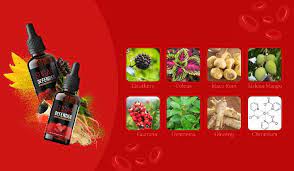Medicines represent a cornerstone of modern healthcare, offering solutions to an array of health challenges and contributing to the overall well-being of individuals worldwide. From humble beginnings rooted in ancient remedies to the sophisticated pharmaceuticals of today, the journey of medicines is a testament to human ingenuity, scientific progress, and a shared Sugar defender review to healing.
A Historical Tapestry
The history of medicines is rich and varied, reflecting the diverse cultures and traditions that have contributed to its development. Ancient civilizations relied on the healing properties of herbs, minerals, and other natural substances to treat ailments, often blending empirical knowledge with spiritual beliefs. As societies evolved, so too did their understanding of medicine, with the advent of scientific inquiry leading to groundbreaking discoveries in anatomy, physiology, and pharmacology.
Advancements in Modern Medicine
The 20th and 21st centuries witnessed unprecedented advancements in medical science, driven by innovative research, technological breakthroughs, and collaborative efforts across disciplines. The rise of the pharmaceutical industry revolutionized the treatment of diseases, with the development of antibiotics, vaccines, and other life-saving medications transforming the landscape of public health. Additionally, the emergence of biotechnology opened up new frontiers in medicine, leading to the creation of targeted therapies, gene therapies, and personalized medicine approaches.
Addressing Global Health Challenges
Medicines play a crucial role in addressing a wide range of health challenges, from infectious diseases and chronic conditions to mental health disorders and rare genetic disorders. Access to essential medicines is recognized as a fundamental human right, yet disparities in access persist, particularly in low- and middle-income countries where affordability, availability, and infrastructure pose significant barriers. Efforts to improve access to medicines include initiatives to promote generic drug manufacturing, strengthen healthcare systems, and address inequities in healthcare delivery.
Navigating Complexities and Risks
While medicines offer immense benefits, they also come with potential risks and complexities that must be carefully managed. Adverse drug reactions, drug interactions, and antimicrobial resistance are among the challenges facing healthcare providers and policymakers in ensuring the safe and effective use of medicines. Regulatory agencies play a crucial role in evaluating the safety, efficacy, and quality of medicines, while healthcare professionals are tasked with prescribing and administering them judiciously.
Embracing Holistic Approaches
In recent years, there has been a growing recognition of the importance of holistic approaches to health and wellness, which encompass lifestyle modifications, preventive care, and integrative medicine practices. Complementary and alternative therapies, such as acupuncture, herbal medicine, and mindfulness-based interventions, are gaining popularity as adjuncts to conventional treatments, offering patients additional options for managing their health.
Looking Ahead: Innovation and Collaboration
As we look to the future, the journey of medicines continues to evolve, fueled by ongoing innovation, scientific discovery, and collaboration among stakeholders. Emerging technologies, such as artificial intelligence, genomics, and nanotechnology, hold promise for revolutionizing drug discovery, drug delivery, and personalized medicine. Moreover, global health challenges, such as the COVID-19 pandemic, underscore the importance of collective action and solidarity in advancing public health agendas and ensuring access to life-saving medicines for all.
In conclusion, medicines represent a beacon of hope in the quest for better health and well-being, offering solutions to some of the most pressing health challenges facing humanity. By embracing a multidisciplinary approach, fostering innovation, and prioritizing equity and accessibility, we can harness the power of medicines to build healthier, more resilient communities for generations to come.
